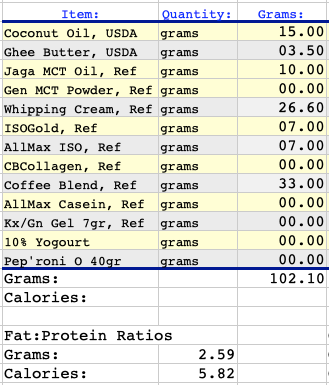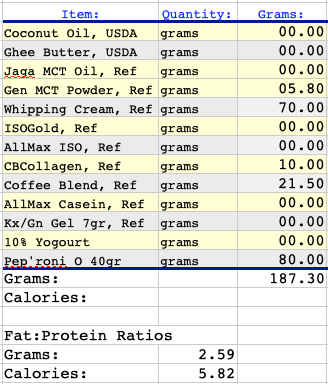Just an observation of what works or doesn’t work for keeping blood ketones high and weight loss continuing. I only lose up to 4 lbs per month if everything is managed perfectly, and stall out if not. I find that if I use heavy weight cream as a ‘fat bomb’ to boost the meal by meal fat calorie percentage, that my ketone numbers start to come down … but if I leave the HWC in the fridge and work hard to use coconut oil-based fat bombs and other oil sources, that my ketone numbers come back up and weight starts going back down. Does this imply that I have some kind of dairy intolerance going on? There are no other symptoms (cramps, bloat, gas … non-existent). My blood ketones are always less than 1.0, even if I’m maintaining 80+ percent calories from fats … and if I succeed at that, they run around .7 to .8. With HWC or only 75% of my calories from fat (either), my blood ketones drop to .3 to .4. I have to be pretty religious if I want weight loss to continue … which is fine. I lose 3-4 lbs per month, which isn’t fast, but it’s getting there … got about 30# to go, lost almost 60# so far.
Anyone else had this experience with heavy cream v. coconut (or other) oils?
Brian



